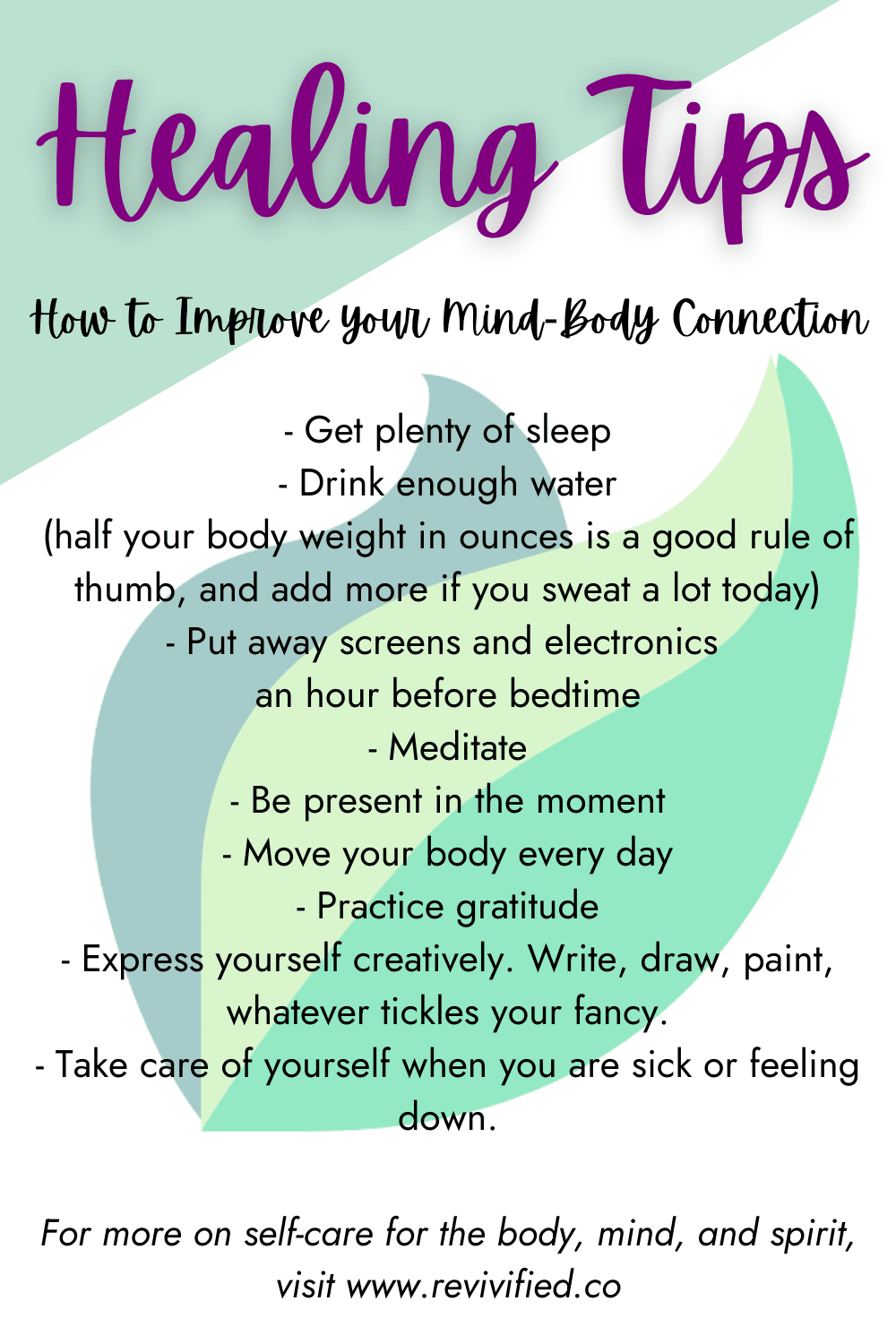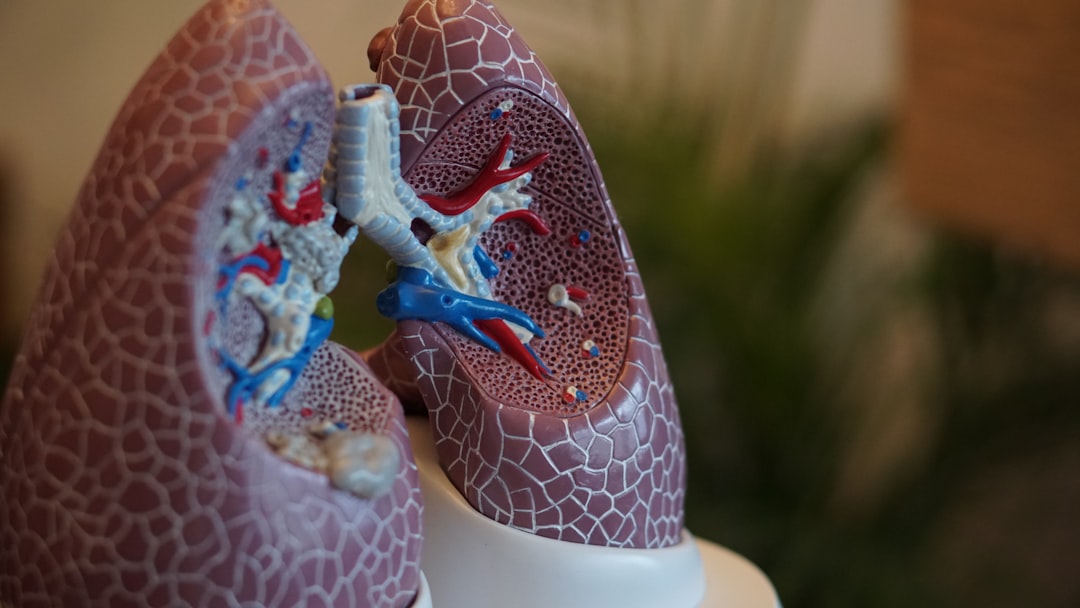What is the "Mind-Body Connection" and How To Improve Yours

Photo by Farsai Chaikulngamdee on Unsplash
We live in a society where we are quite literally connected to the world by our fingertips. We don’t have to scour through local phone books to reconnect with long-lost friends. We don’t have to pay ridiculous long-distance phone rates to talk to family who lives overseas. With the development of the internet, our world is more connected in the most convenient ways than our great grandparents would have ever thought possible.
But with this new, ever-developing ease of connection, many people have managed to lose their sense of connection between their minds and their own bodies in which they live in.
It can be reasonably argued that humans today are the unhealthiest they’ve ever been. Diseases bourne from lifestyle choices such as diabetes and heart disease have been on the rise for years, our mental health is disintegrating from between our own fingers and sometimes it seems we have only figured out how to put a bandaid on it. On top of what we can explain, illusive autoimmune disorders are rising and we’re only at the tip of the iceberg when it comes to understanding them.
We’re rapidly losing our connection with ourselves, our bodies, and our health...
So what is the mind-body connection?
When we talk about the mind-body connection, we’re talking about how emotions, feelings, and thoughts all affect our physical health.
Modern medicine generally treats the mind and the body as two separate entities, then further breaking down the body into separate systems. Before the dawn of modern medicine, more traditional means of healing, such as Traditional Chinese Medicine, looked at the body as a whole and each system as intertwining parts that all affect one another. Even as far back as the second century, the Greek physician Galen and physician and philosopher Moses Maimonides studied how emotions affect the physical body.
At one point in time, this all seemed like fringe healthcare, but in the last couple of decades, the concept that emotions, stress, behavior, social, and economic status actually have a profound effect on our neurological, endocrine, and immune systems has made its way into the mainstream.
Why? Because our body isn’t a machine made up of moving parts, but a whole, cohesive, intertwined unit in which each piece is profoundly interconnected with all the other pieces; if you pull on the threads of one unit, all the other units are affected.
The Studies.
This concept has been making its way into the realms of science for the past thirty years. If you have a good doctor, they probably asked you about your stress levels last time you had a physical.
Back in the 1980s, a group of women with metastasized breast cancer was observed after participating in expressive group therapy to manage stress and it was found that they had a better quality of life, better symptom control, and lived longer than the control group who only sought traditional treatment.
This observation triggered a larger body of research into how stress management, cognitive behavioral therapy, and talk therapy affected outcomes of various cancers, diseases, and other health conditions.
Dr. Dean Ornish, a physician and researcher of the University of California and founder of Ornish Lifestyle Medicine, is a modern-day pioneer in the field of preventative medicine. In the 1980s when he initially made the claim that lifestyle choices could prevent illnesses such as heart disease, he was almost laughed out of the field. But throughout the ’80s and ’90s when other independent studies backed up his claims, his program began to gain momentum, and today, it has been adopted throughout the country.
Dr. Ornish has observed how changes in diet, adaptations of habits such as meditation and yoga, exercise, stress management, and social support have impacts on the outcomes of different diseases. Today, he is a leading researcher in a growing field of study to see if lifestyle changes can have an effect on the prognosis of Alzheimer’s Disease.
The Heart Space.
Have you ever gotten bad news and felt a tightening in your chest, perhaps around your heart?
The heart chakra is the energetic space around your heart organ and is associated with love, empathy, forgiveness, connectedness, generosity, gratitude, relationships, love for others, and love for yourself. When the heart chakra is out of balance, one might feel lonely, hurt, unhappy, insecure, or depressed.
Even on a scientific level, there’s been a growing body of evidence suggesting that people with depression are as much as 64% more likely to develop cardiovascular problems later in life. Part of this could also be attributed to the choices that tend to be made when one is depressed, from poor diet and lack of movement to smoking, drinking, or other substance abuse problems.
To establish the cause and effect relationship, one study looked at if treating depression early could reduce the risk of cardiovascular issues later on, and observationally, showed a 48% decrease in the risk of heart problems once depression was treated.
Although this was one study, it has prompted other long-term studies to be done, as well as suggestions from organizations like the American Heart Association that depression and bipolar disorder in teens should be treated and monitored early due to the increased risk of heart issues later in life.
Even within relationships, another aspect of life affecting that heart space or heart chakra, one study found that women’s arteries around their hearts would harden if their husbands showed hostility during marital disagreements, and that husband’s arteries would harden if their wives acted in controlling ways.
- Smith TW, Berg C, Uchino BN, Florsheim P, Pearce G (2006) Marital conflict behavior and coronary artery calcification. Presentation at the 64th Annual Scientific Conference of the American Psychosomatic Society (Denver, CO, USA), 3 Mar
So how do you foster your mind-body connection?
Signs that you are detached from your body:
- You often feel fatigued, ill, nauseous, or have consistent headaches or muscle aches that you can’t figure out where any of it is coming from
- You pay more attention to the calorie counter on the treadmill when you go to the gym as opposed to how your body is feeling
- You often feel ill or sore after eating certain foods, but not sure what component of said food is making you feel that way
- You feel depressed, anxious, or angry and can’t figure out where these feelings are coming from You feel out of touch with others around you and don’t know how to reconnect
- Stress or emotions overwhelm you and you don’t know how to get them under control
Whether or not you believe in the chakras, you can still take steps to improve your connection with your own body.
Working on improving your mind-body connection can give you a new awareness of what is going on inside your body, how certain foods or choices affect your body and your health, as well as help you decrease stress.
Listen to your body
Start honing in on your aches and pains. If you start getting a headache, instead of reaching for the Advil, close your eyes and listen to that pain.
Can you tell where it’s coming from?
Often headaches are a result of muscle tension that originate in the neck or upper back. Is the headache in the back of your head, your forehead, or your temples?
Take your thumbs and press them into the ridge on the back of your head where your neck meets your skull. Often, this little move can alleviate a lot of headaches.
What were you doing when the headache started? Were you at a computer? If you were, was your upper back hunched over and your neck inching forward? This distorted posture could affect the muscles that cause headaches, so start trying to pull your head and shoulders back and sit in better alignment.
Be mindful about the food you eat.
Did your stomach feel like an exploding gas ball after you went out to dinner at Applebee’s last night?
Perhaps you start to get joint pain after eating gluten or dairy?
I probably don’t have to reiterate that there is a lot of crap out there in the western diet, and highly processed foods contain a lot of irritants and not a whole lot of nutritional value.
If you think you may have food sensitivities, try an elimination diet for 30 days, and observe every day how you feel. When you start reintroducing those foods, carefully observe how you feel as you eat. Did you suddenly get joint pain after eating gluten for the first time in a month? Well, perhaps gluten is a problem for you. (Talk to a dietician if you need help or guidance here).
Mindful eating is a process of being present with your body and the food you eat.
It’s listening to your body’s hunger cues, how you feel eating food, as well as how you feel afterward.
It’s not listening to things like calories, carbs, or fat, but just being present with your food and feeling good about what you put in your body.
Intuitive eating is a similar approach program but goes a step further to reject the diet mentality, challenge the food police, and make peace with the food you eat and your own body.
Feel GOOD when you eat, no matter what you eat. If you’re going to eat chocolate cake, enjoy every bite. Seriously. A study published in 2013 showed that people who associated eating chocolate cake with guilt were more likely to feel their eating was out of control and less likely to lose weight, as opposed to those who associated eating chocolate cake with happiness and celebration.
What to pay attention to when you exercise.
Exercise because it feels good, exercise because our bodies were made to move, and movement makes us happy and healthy and gives us longevity.
When you go to the gym, don’t base your workouts on what the calorie counter says, or even the timer. Once again, listen to your body.
When you really feel like you just can’t go anymore, then stop.
Be mindful of the line between when your brain thinks you want to stop, and when your body is actually ready to stop. In the world of fitness, trainers will tell you to go until you think you can’t go anymore, then to go just a little bit longer! Our brains tend to want to tell us to stop before our body is really ready. This is a good challenge in listening to your body.
Manage stress.
Stress is arguably the biggest cause of sickness, disease, mental health disorders, and early death. Like I said, a good doctor these days will ask you about stress management during your annual physical.
If you feel you are under a lot of stress, you probably need to find ways to manage it. Good ways to manage stress include mindful meditation, exercise, good quality diet, taking time away from your stressors, talk therapy, listening to music, creating art, going for a walk, and expressing gratitude.
Be present in the here and now.
Being present in the moment can help you find a connection with your body, through listening to your breath and noticing aches, pains, or ailments as they come up.
Mindful meditation is a good way to foster this mind-body connection. If you’ve never meditated before, there are tons of guided meditations on services such as Gaia.
Focusing on your breath can help calm the mind; observe thoughts as they pass through instead of trying to “quiet” the mind. Remember, your brain is a reflexive organ that has 60,000-some-odd thoughts a day, you can’t shut that shit up. Instead, learn to observe these thoughts with a sense of detachment.
Take care of yourself when you are sick.
If you’re coming down with a cold, take time off to rest so your body’s immune system can do that wonderful thing that it does and make you all better.
Don’t barrel through the sickness. I know, I know, I used to do it a lot, too, and I often found it would take me a long time to get better, only to find myself sick again relatively soon after. If you’re sick, stay home. Rest. Rejuvenate. Sleep a lot. The world will be there when you are better. Put your health first.
Trust your intuition.
We all have intuition. Have you ever met somebody who gave you just had an uneasy feeling in the pit of your stomach? Or do you remember the first time you met your spouse or even your best friend? What was the feeling you had being in their presence for the first time ever?
The more we learn to listen to our bodies, the more in tune with our own intuition we become. Learn to trust your gut, and don’t let your monkey mind override what your intuition is telling you.













If you enjoyed this article or recipe, please consider giving it a comment! It helps others discover my blog and recipes, and your comments always make my day :) Thank you for your support!
Your email address will not be published. Required fields are marked *